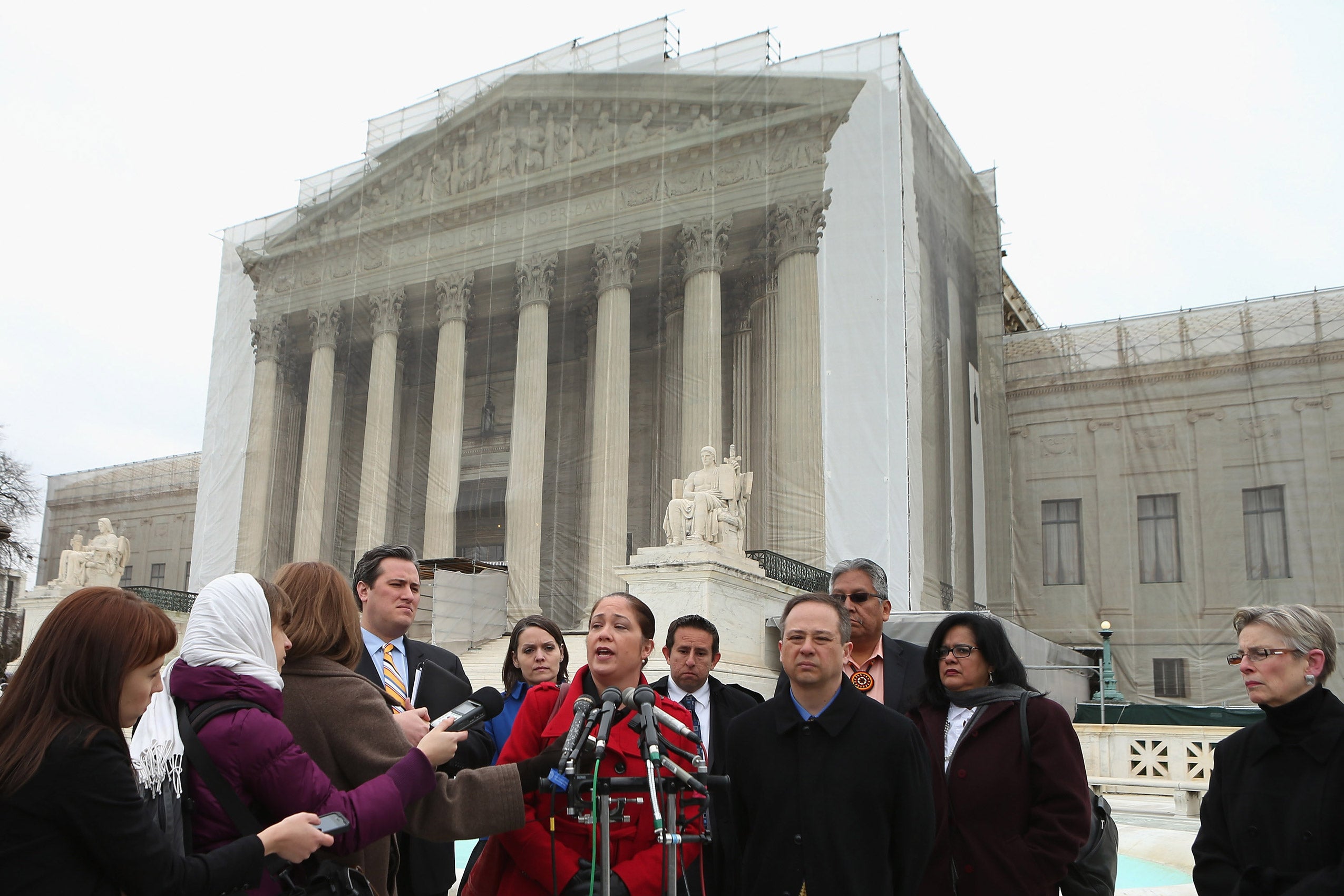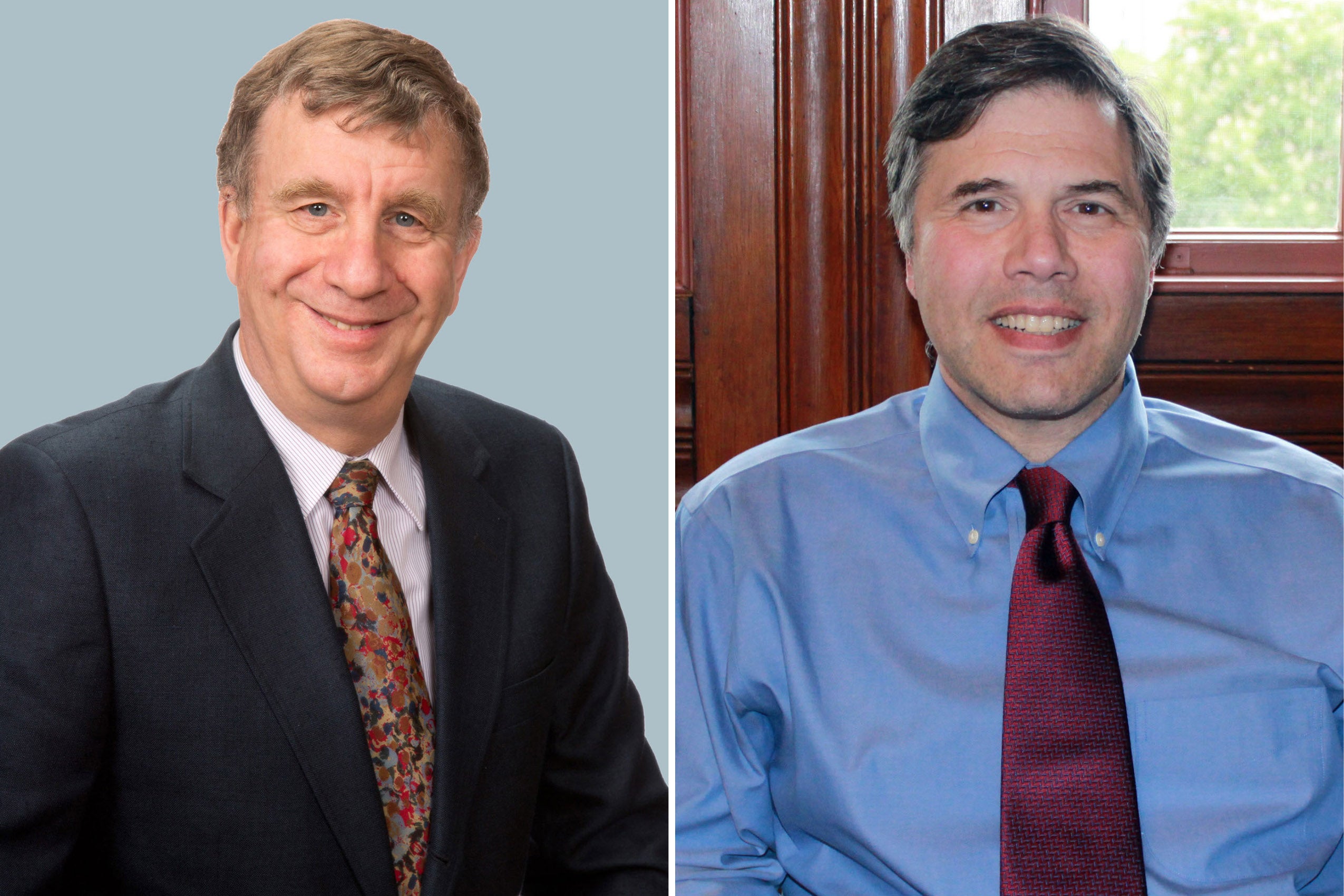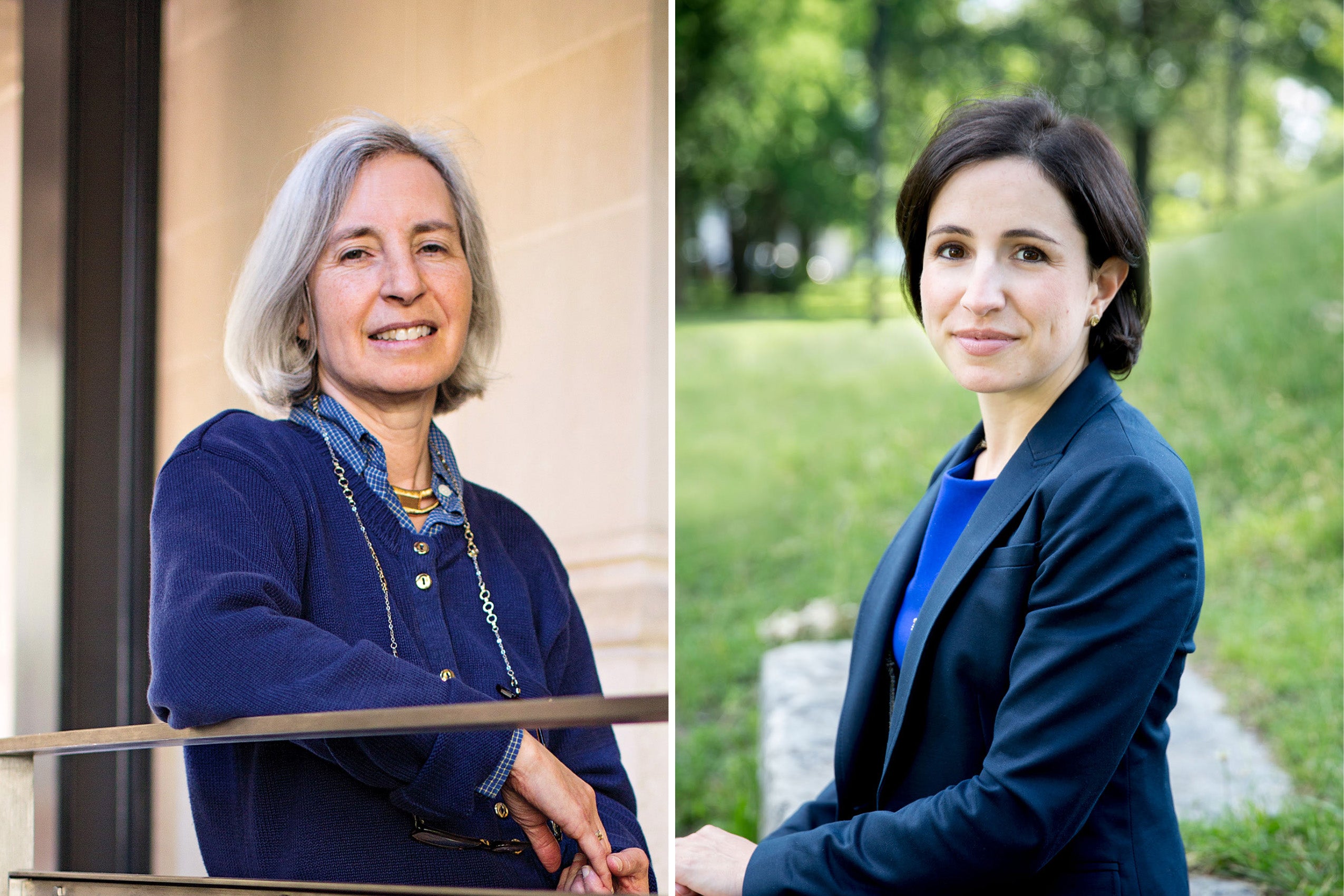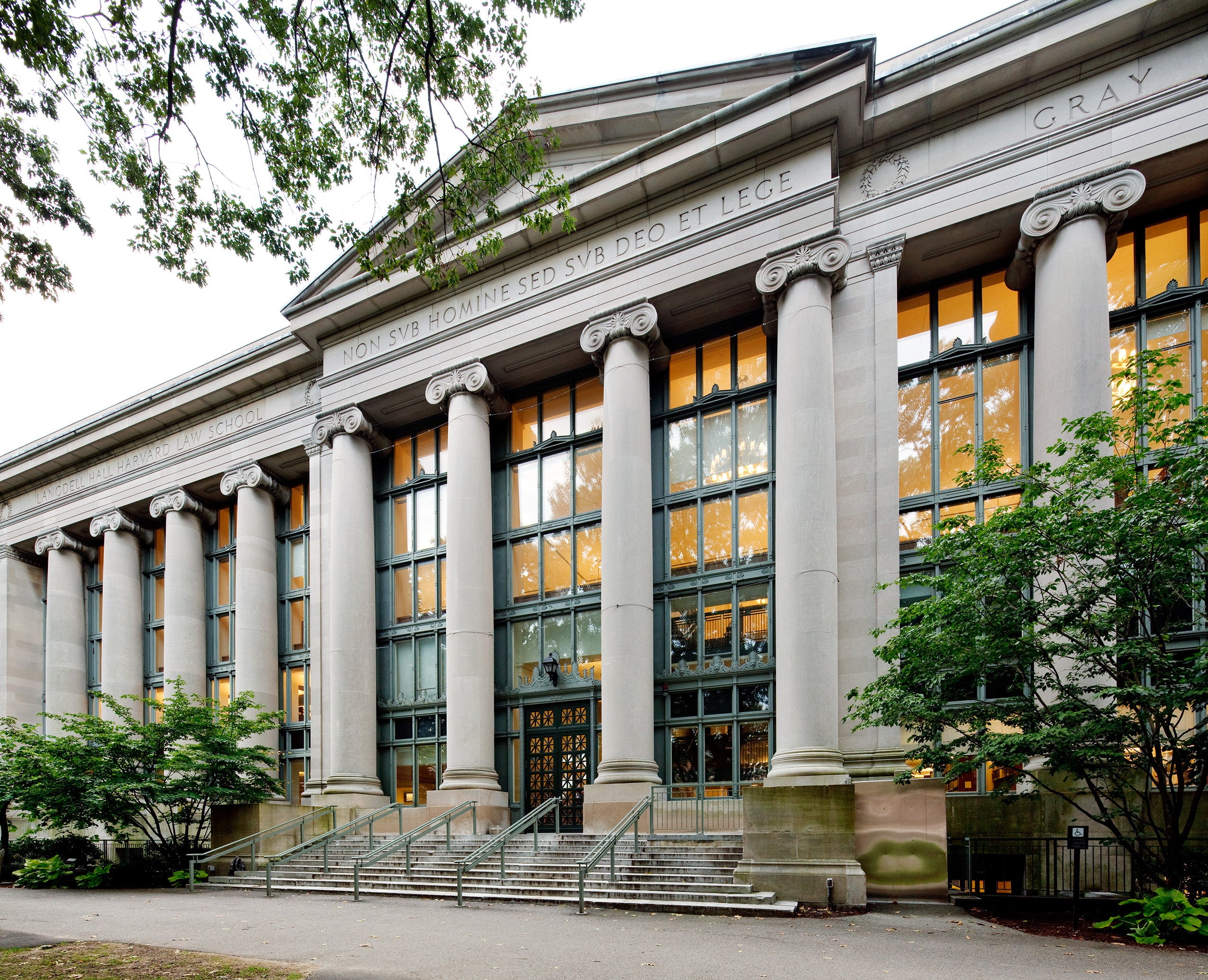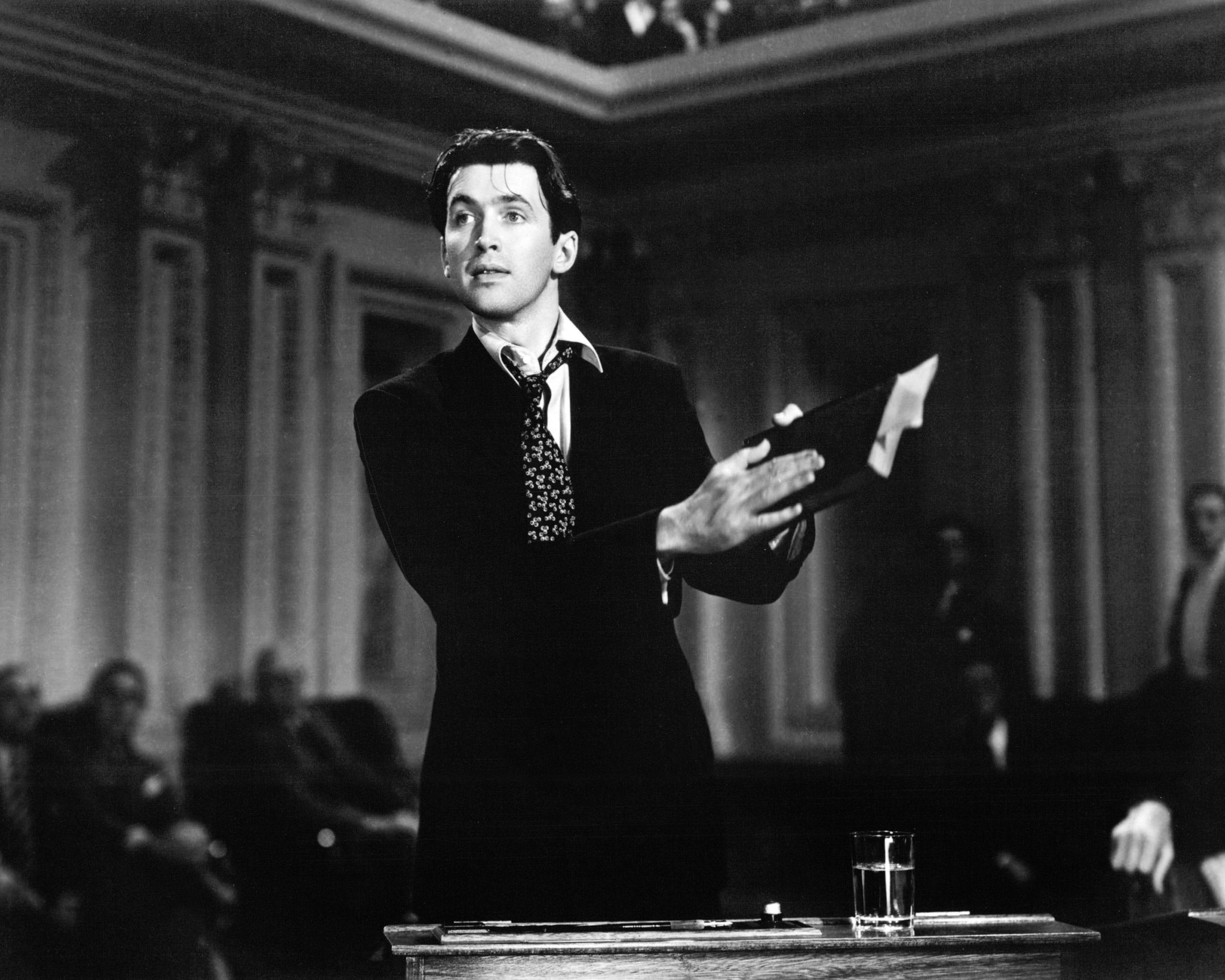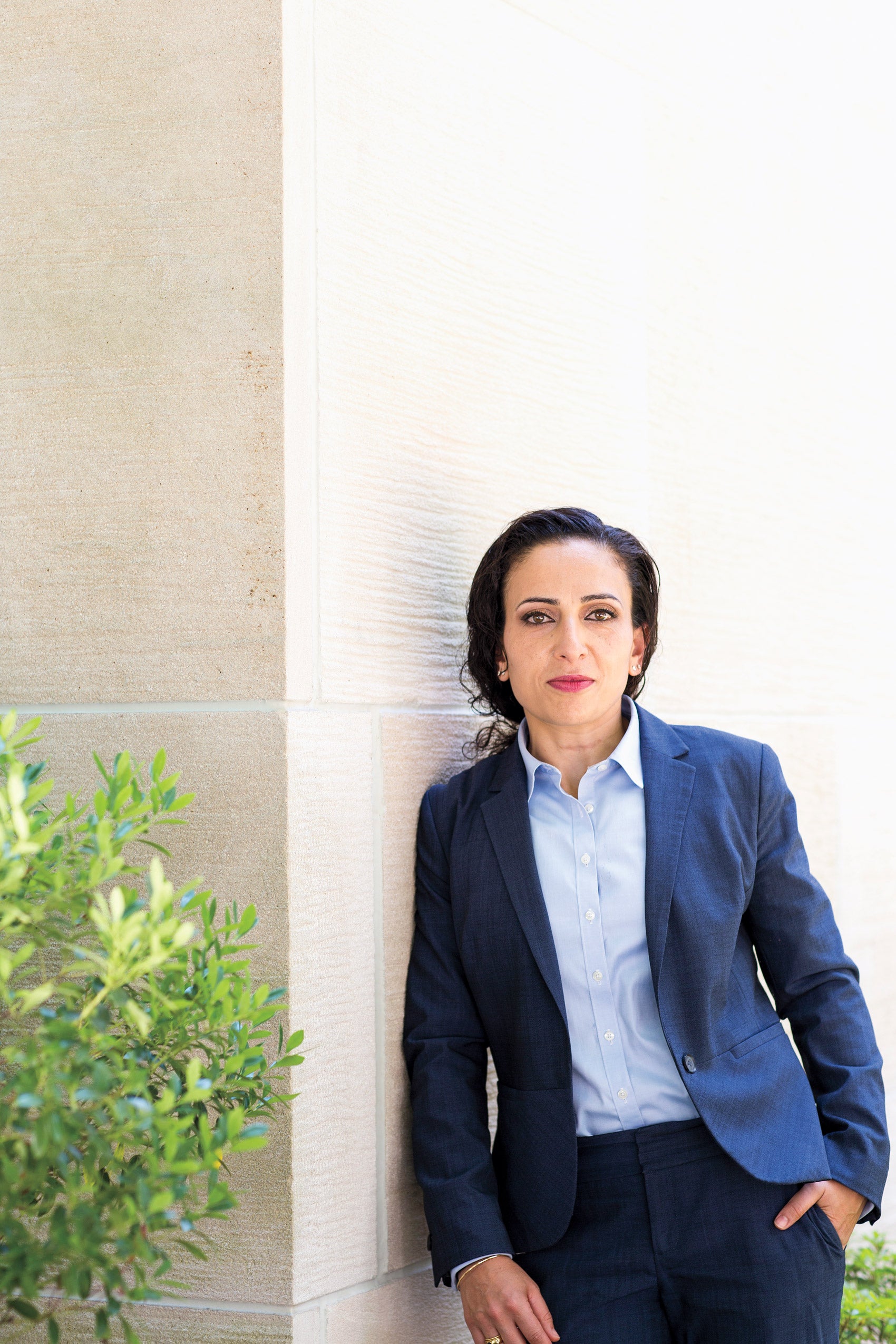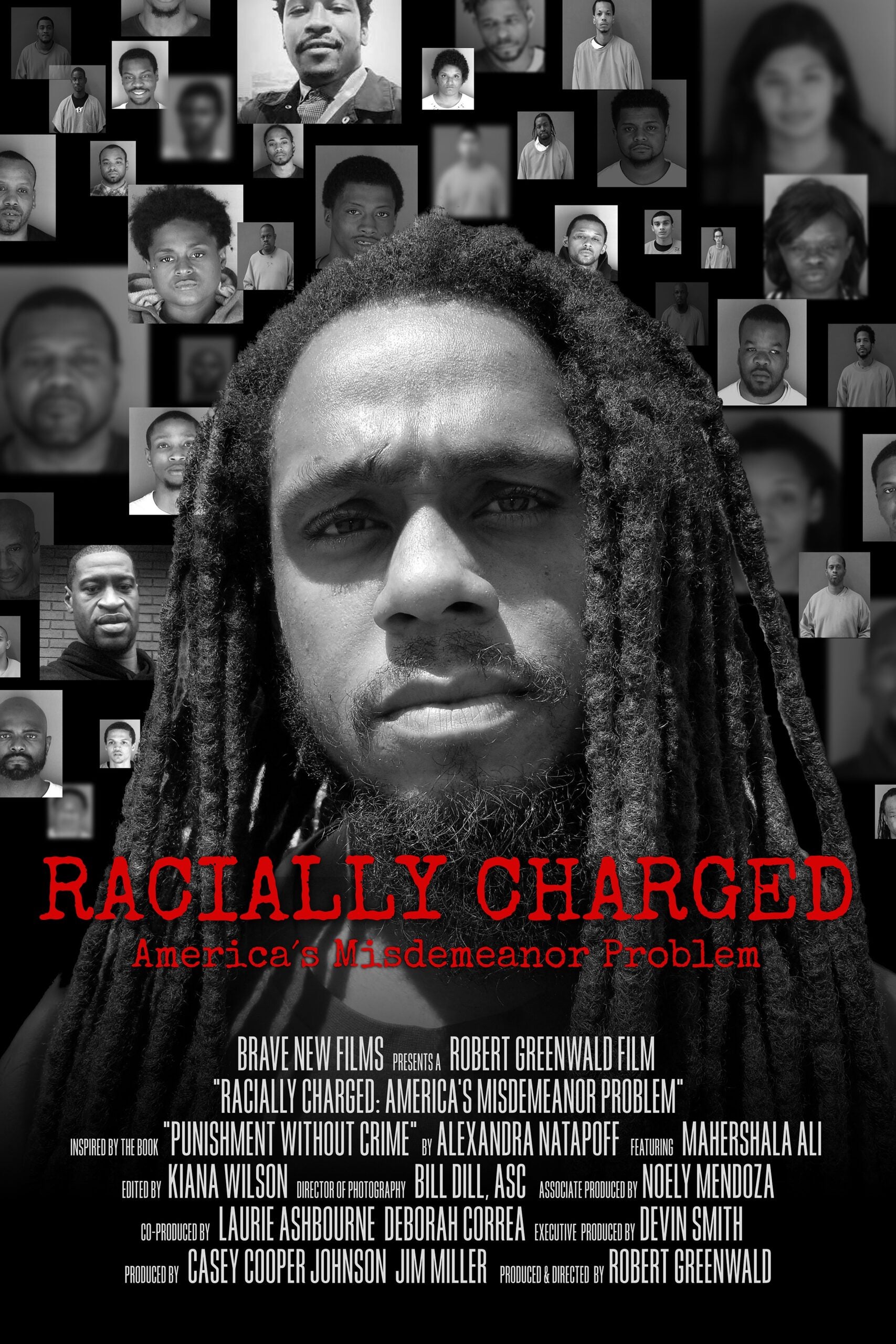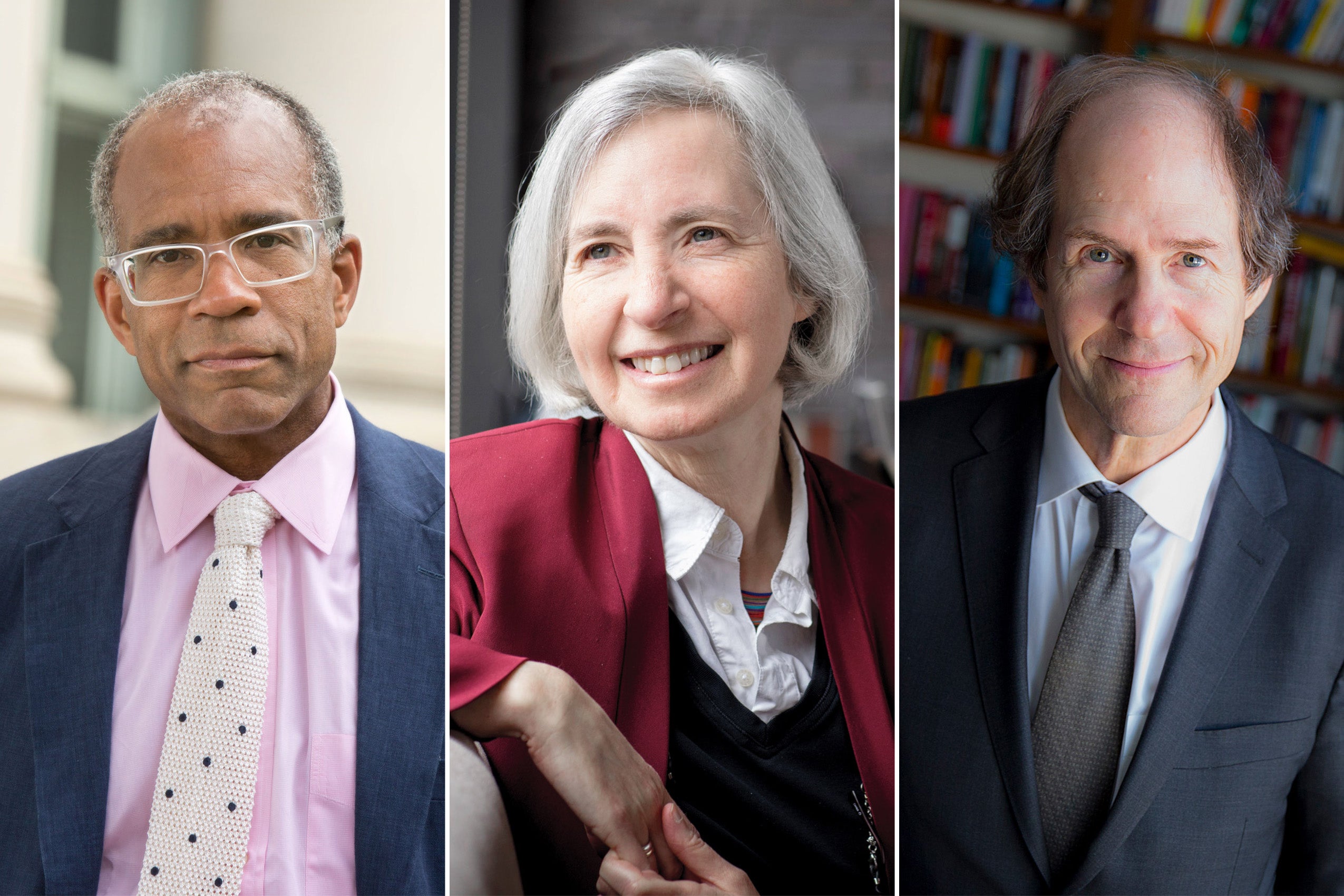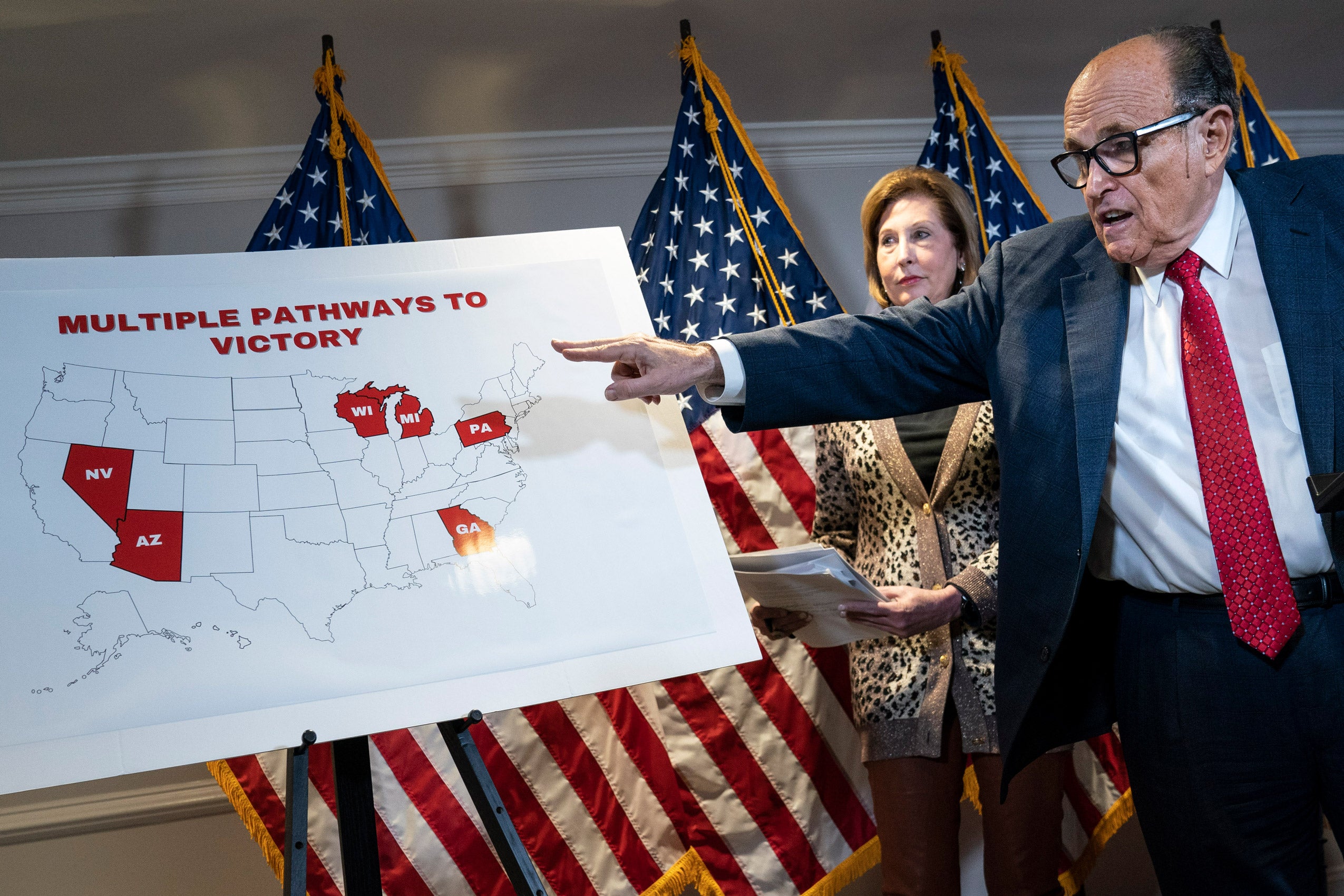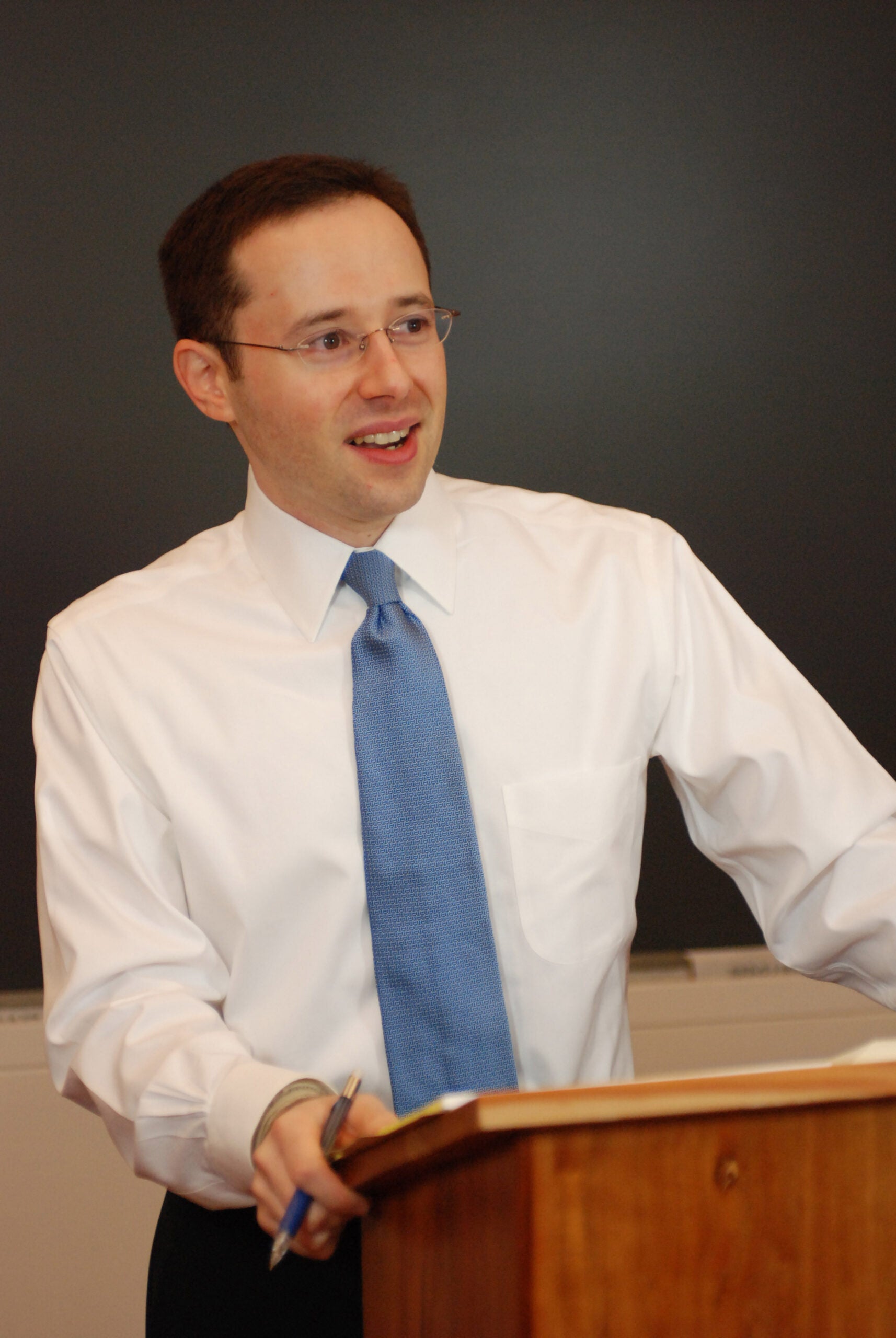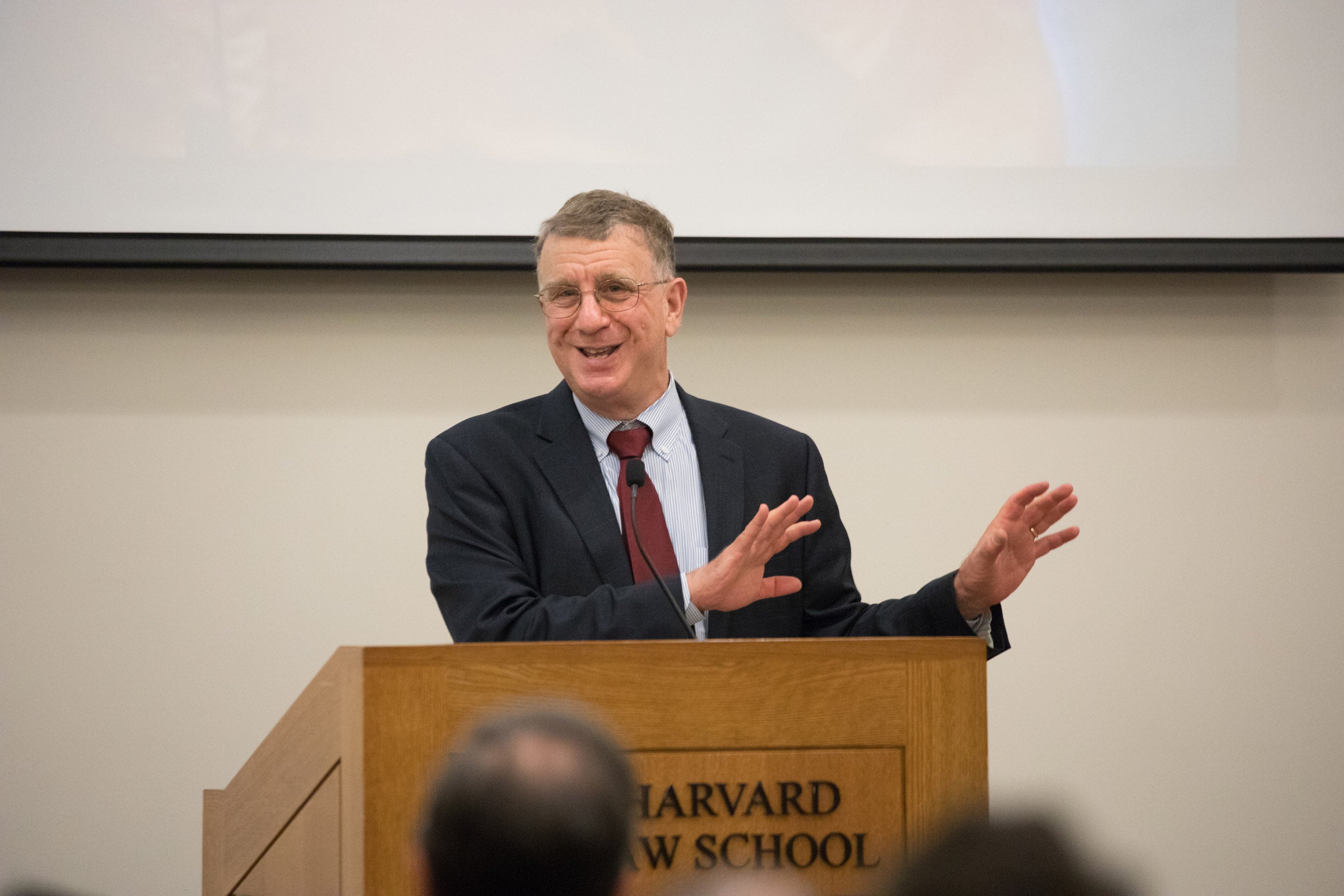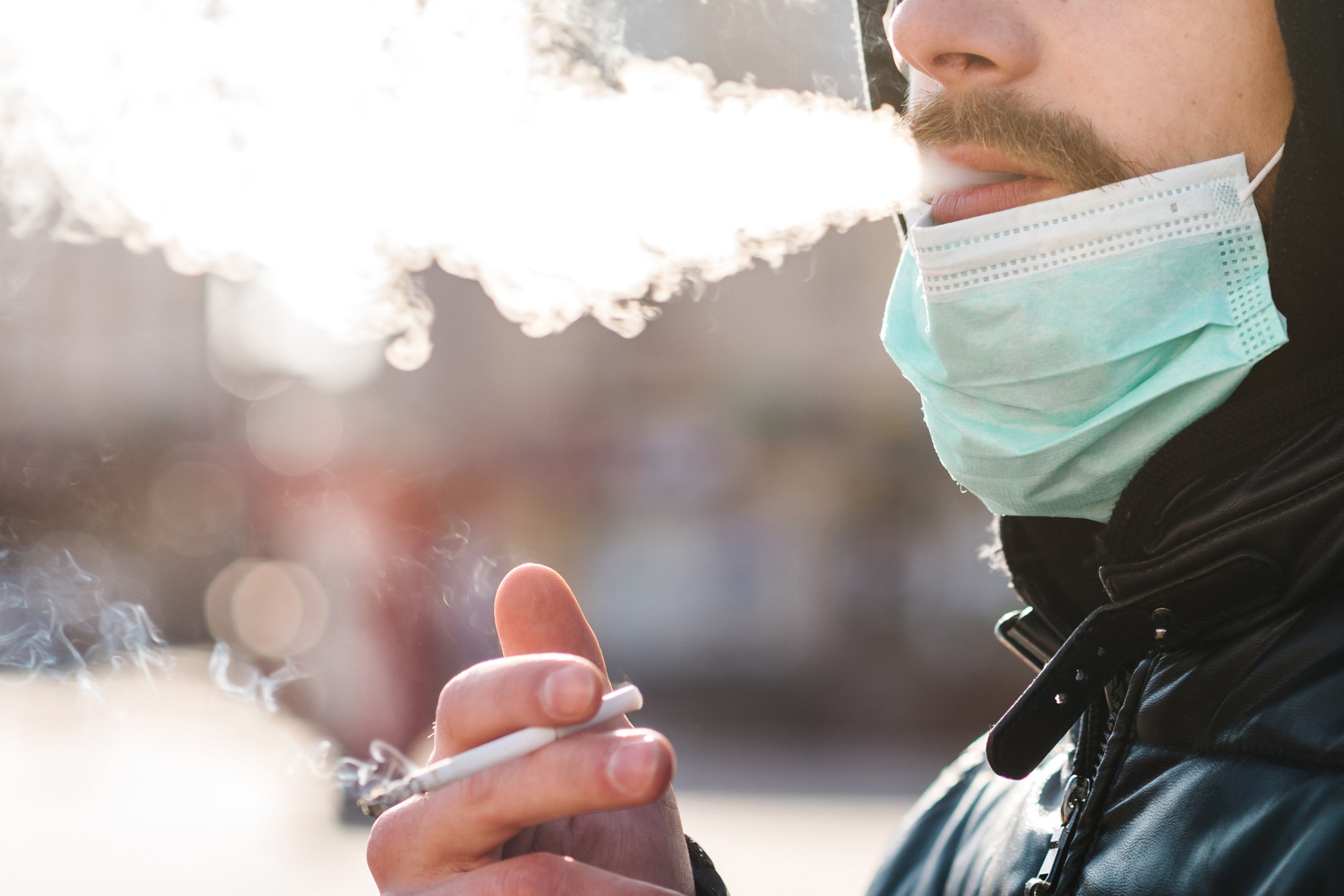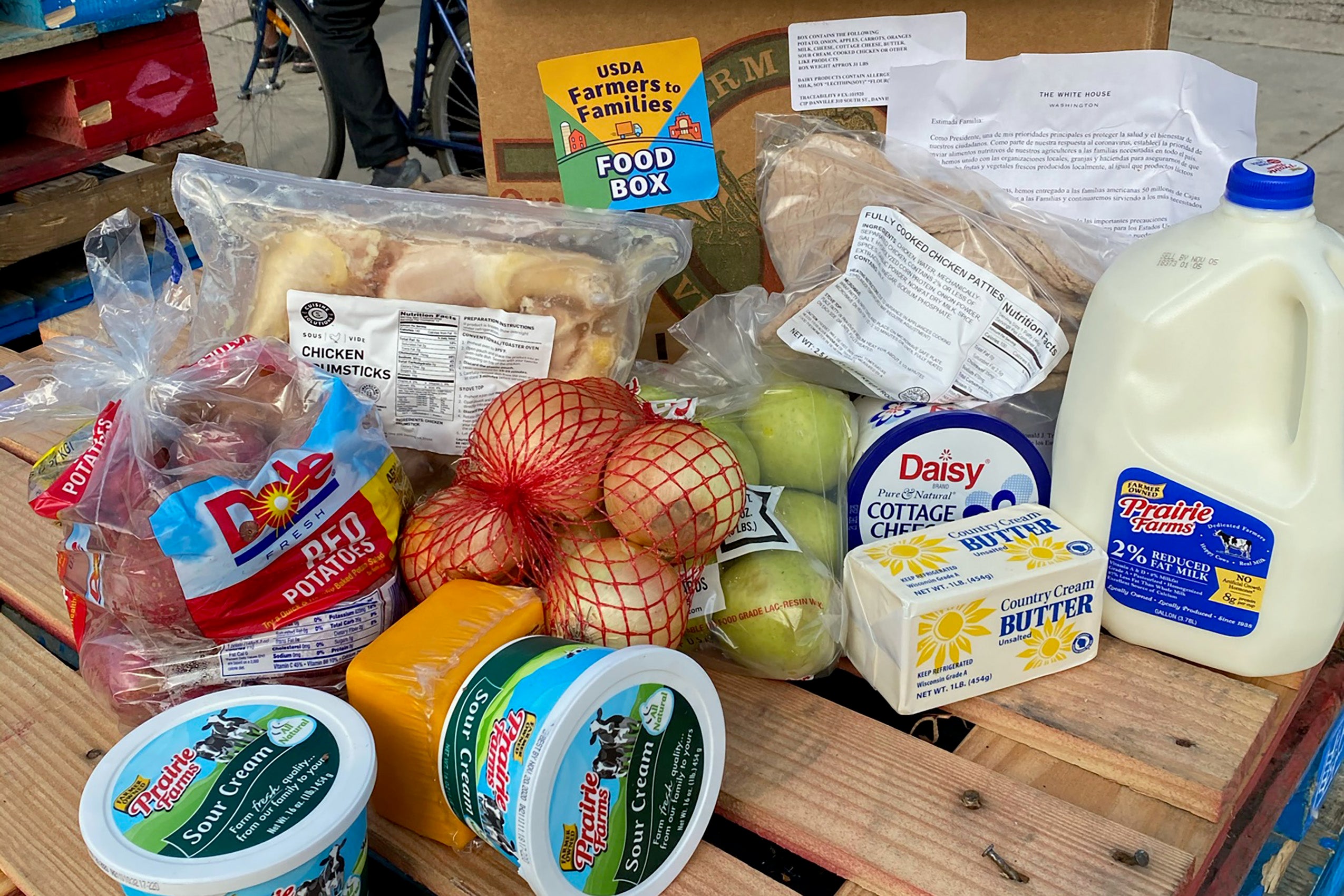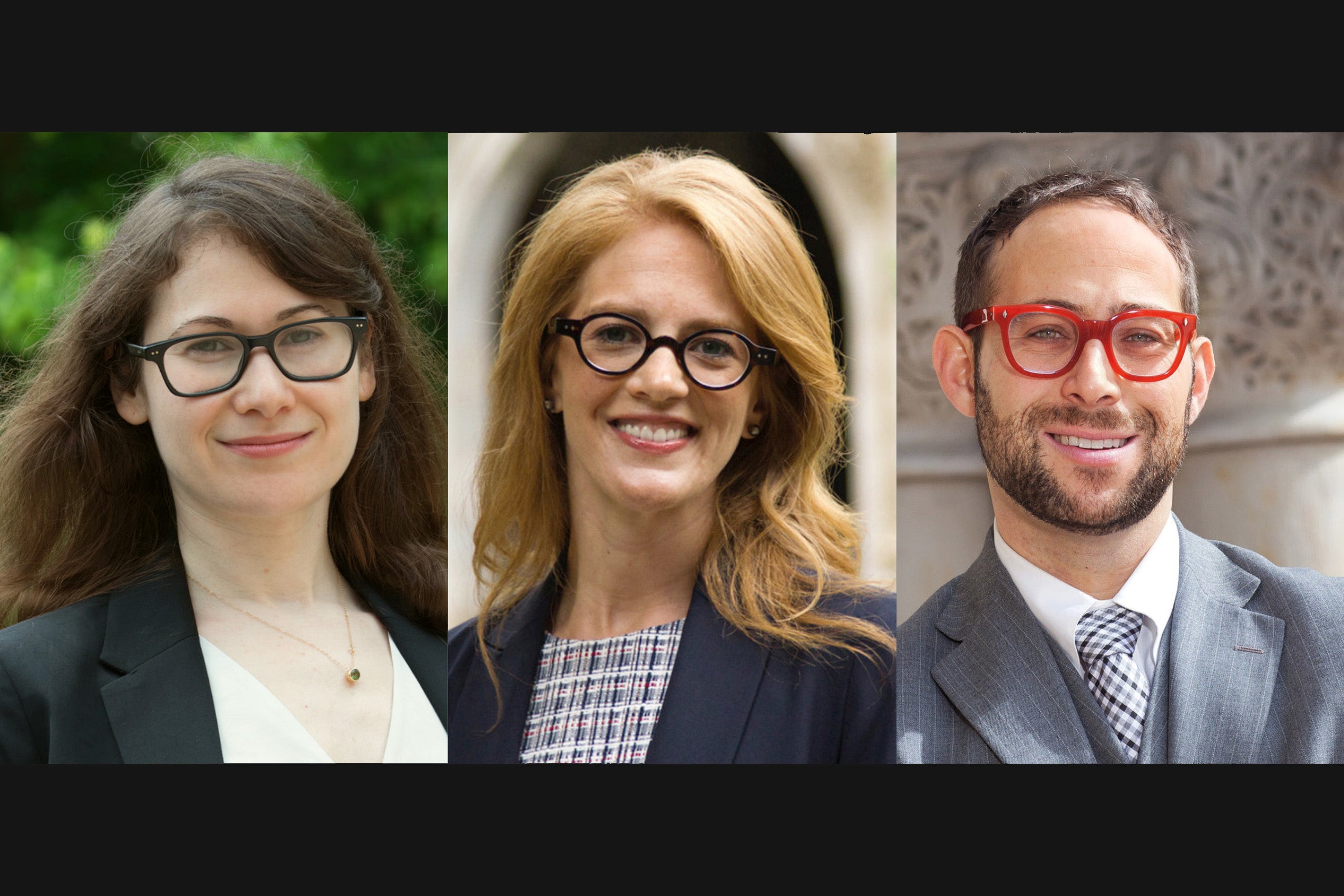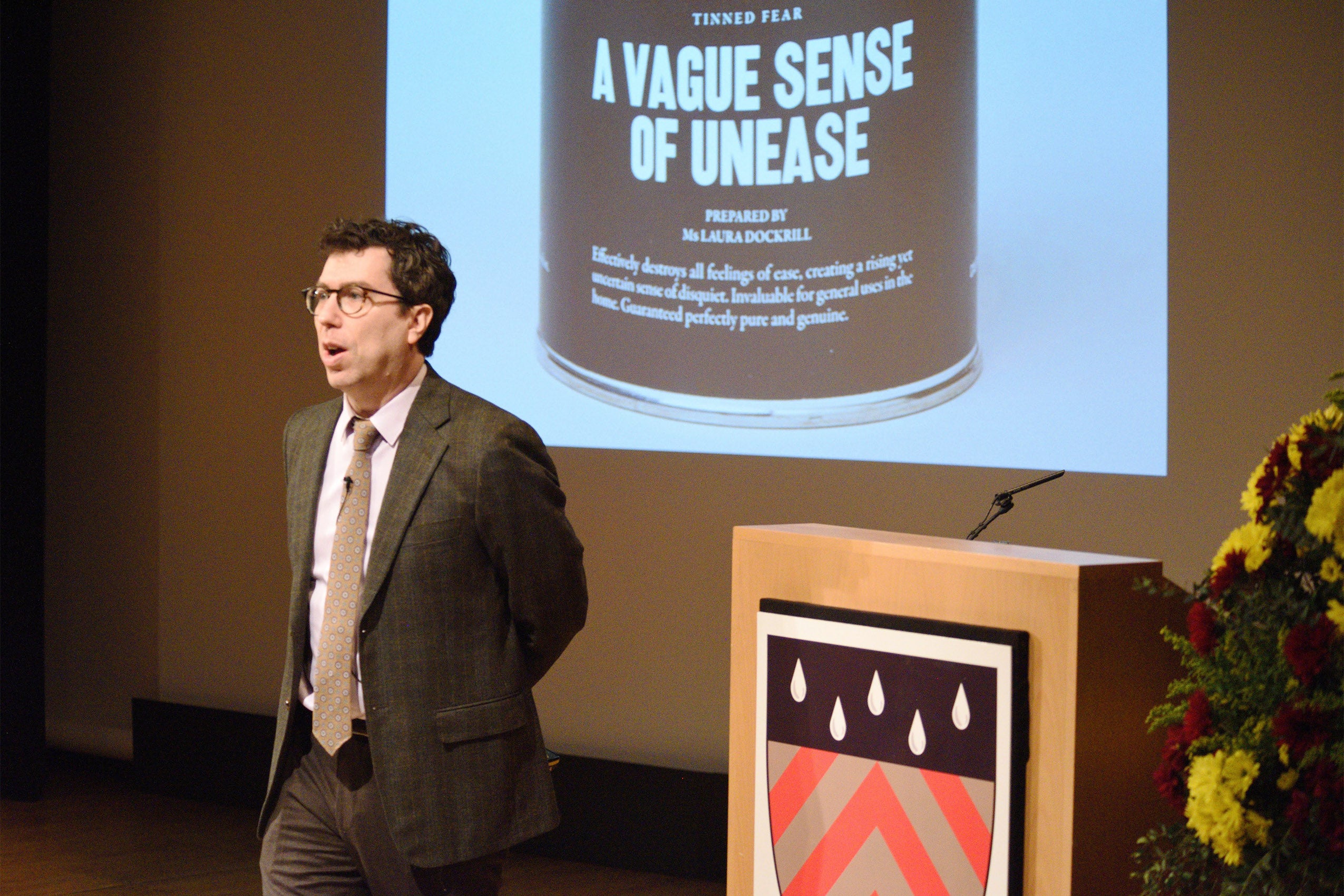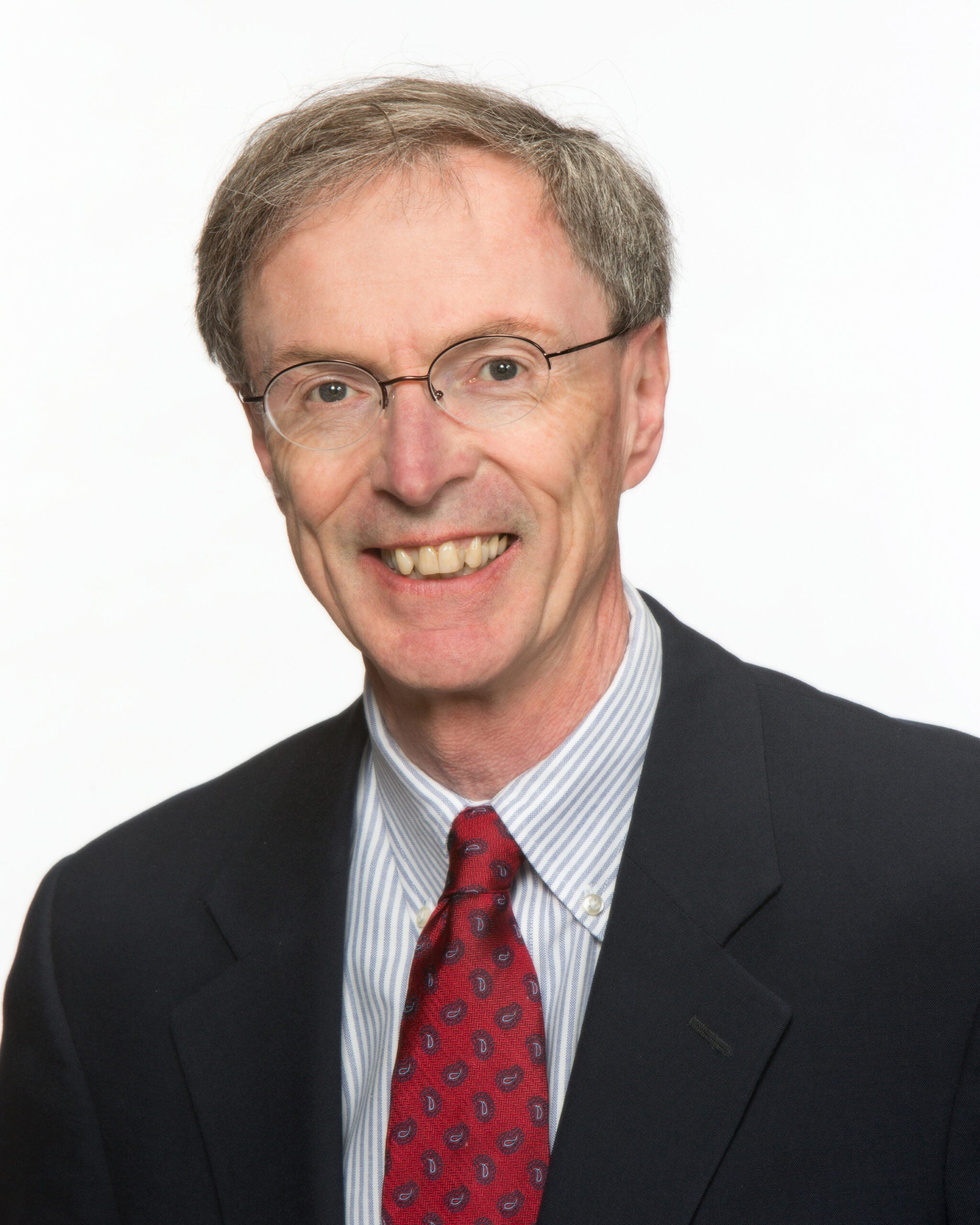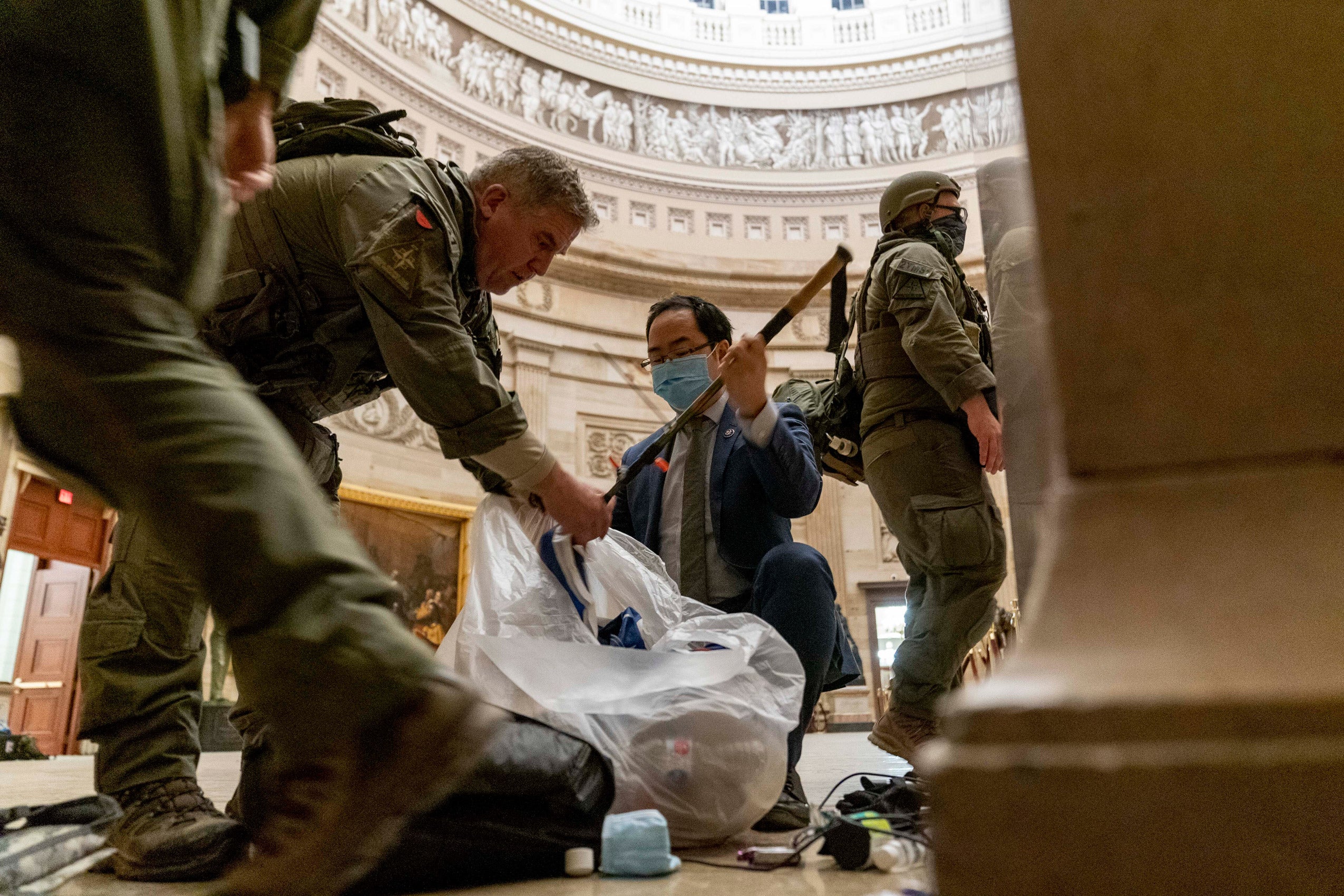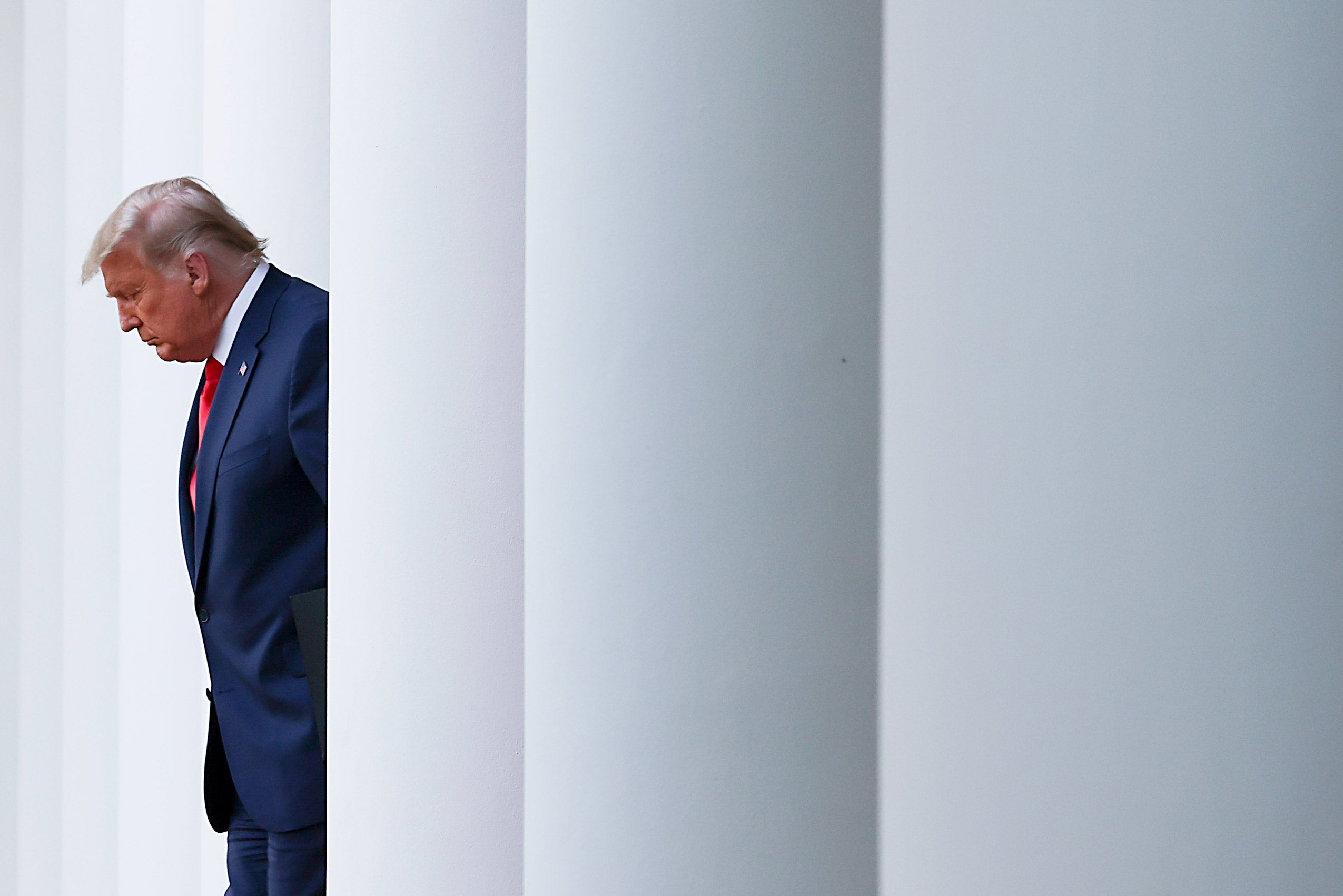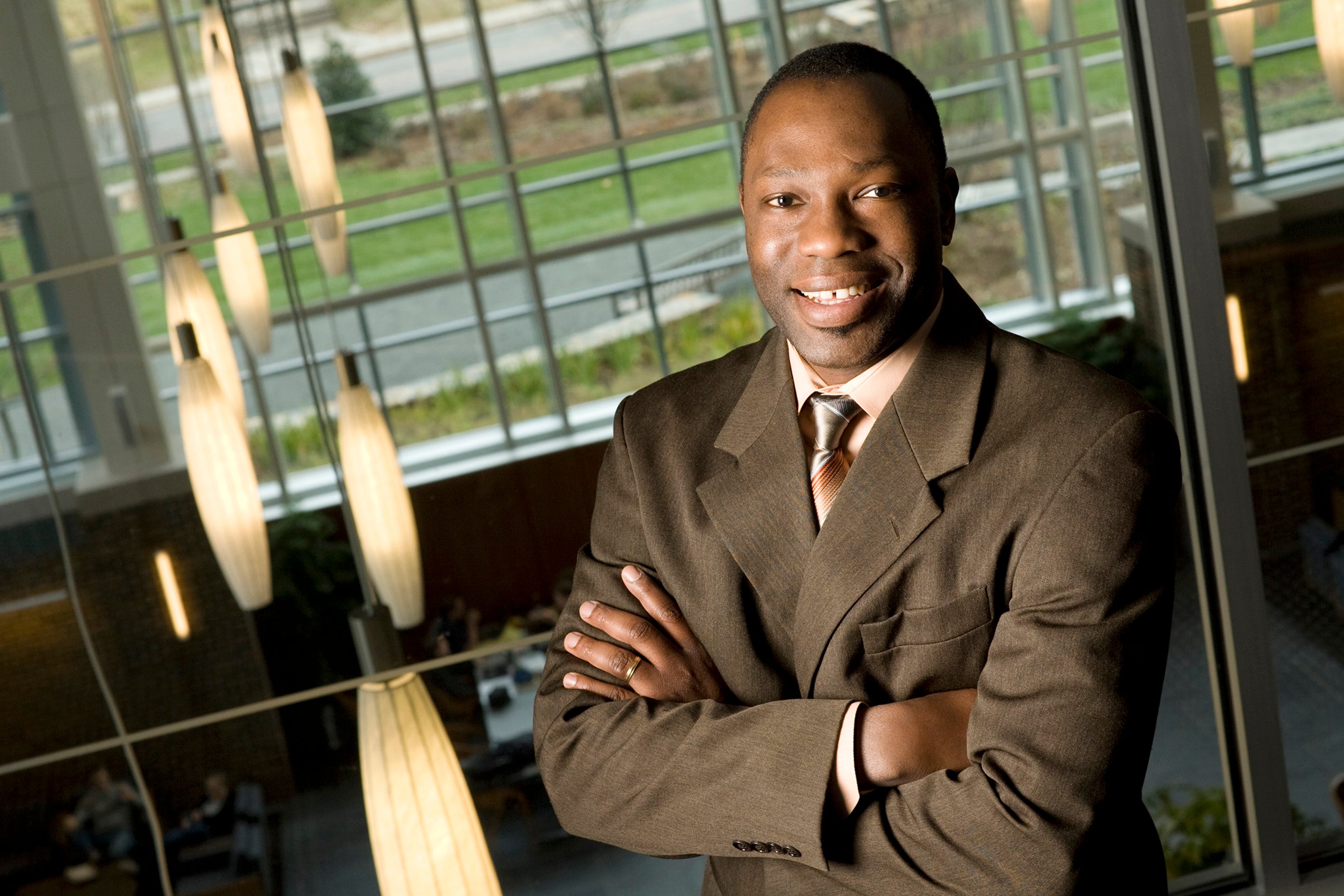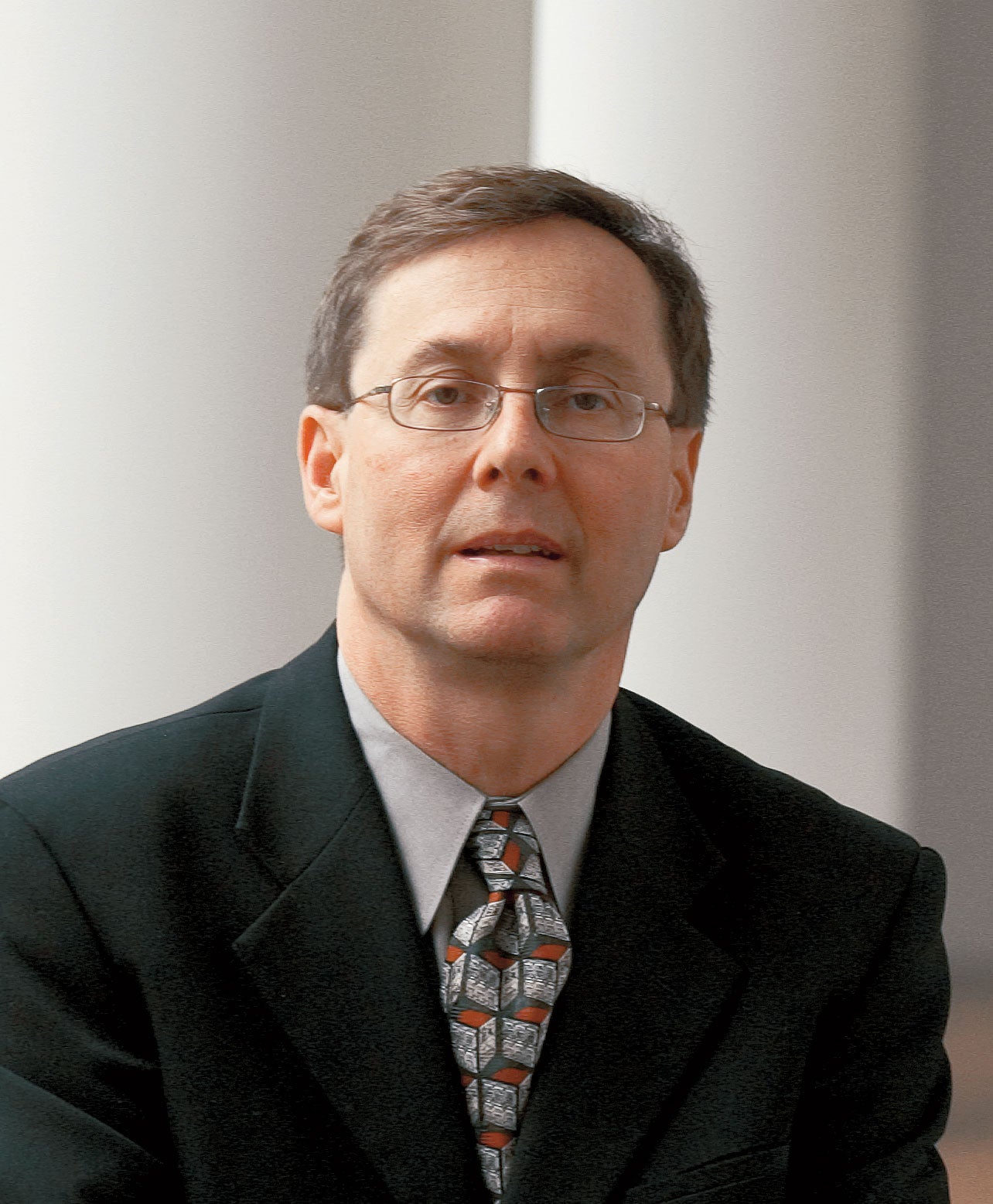Themes
Faculty Scholarship
-
Charting the course on Latino civil rights
March 25, 2021
Nina Perales has spent 25 years fortifying and advancing civil rights for Latinos, and this semester, is teaching a course at Harvard Law School about their ongoing struggle for equality in the United States.
-
Founders of Harvard Law School Project on Disability honored by the president of Ecuador
March 18, 2021
Visiting Professor Michael Ashley Stein ’88, executive director of the Harvard Law School Project on Disability, and Professor William P. Alford ’77, who cofounded the project, known as HPOD, were awarded the National Order of Merit by the president of Ecuador on March 8, in recognition of their work on disability.
-
COVID and the law: What have we learned?
March 17, 2021
The effect of COVID-19 on the law has been transformative and wide-ranging, but as a Harvard Law School panel pointed out on the one-year anniversary of campus shutdown, the changes haven’t all been for the worse.
-
More than 1,200 empirical studies apply an index developed by HLS Professors Bebchuk, Cohen and Ferrell
March 11, 2021
"What Matters in Corporate Governance," a 2009 study by Harvard Law Professors Lucian Bebchuk, Alma Cohen, and Allen Ferrell continues to have enormous influence on present-day research
-
Filibuster or bust?
March 10, 2021
Harvard Law Professor Kenneth Mack ’91 discusses the origins and history of the filibuster, a controversial and powerful political tool.
-
Modirzadeh briefs UN on self-defense and state silence
March 5, 2021
On Feb. 24, Professor of Practice Naz Modirzadeh ’02, founding director of the Harvard Law School Program on International Law and Armed Conflict (HLS PILAC), briefed a United Nations Security Council Arria-formula meeting convened by the Permanent Mission of Mexico.
-
Racially Charged: America’s Misdemeanor Problem
March 1, 2021
Virtual film premiere and panel discussion of new documentary inspired by HLS Professor Alexandra Natapoff’s book, “Punishment Without Crime.”
-
Kennedy, Minow, Sunstein found new American Journal of Law and Equality
February 23, 2021
Three Harvard Law School professors have teamed up with MIT Press to launch a new journal focused on issues of inequality.
-
Disinformation on trial
February 17, 2021
Tort law expert and Harvard Law Professor John C.P. Goldberg explains what election technology companies Smartmatic and Dominion Voting Systems must do to prove their claims of defamation against former former Trump allies, how likely they are to succeed, and whether these types of lawsuits might have an impact in the fight against disinformation.
-
Sitkoff appointed to chair Drafting Committee for Uniform Act on Conflict of Laws in Trusts and Estates
February 12, 2021
Robert H. Sitkoff, the John L. Gray Professor of Law at Harvard Law School, has been appointed chair of the Uniform Law Commission's drafting committee for a Uniform Act on Conflict of Laws in Trusts and Estates.
-
Harvard International Law Journal honors Professor Alford
February 4, 2021
Scholars, alumni, and friends from around the world commemorate Alford’s legacy and impact.
-
Should smokers be prioritized for COVID vaccine?
February 2, 2021
Should smoking be among the pre-existing health risks that qualify people for priority access to the COVID-19 vaccine? Harvard Law public health expert Carmel Shachar says the answer is yes.
-
Food Law and Policy Clinic releases report evaluating Farmers to Families Food Box Program
February 2, 2021
In their new report, An Evaluation of the Farmers to Families Food Box Program, Harvard's Food Law and Policy Clinic and the National Sustainable Agriculture Coalition highlight opportunities to make the program more equitable and effective amid the COVID-19 pandemic and beyond.
-
The Petrie-Flom Center at Harvard Law School is joining forces with the Solomon Center for Health Law and Policy, its counterpart at Yale Law School, to host a seminar series reflecting on ethical and legal issues raised by the COVID-19 pandemic.
-
Gaining power, losing control
January 28, 2021
As the 2020 Tanner Lecturer on Human Values at Clare Hall, Cambridge, Harvard Law Professor Jonathan Zittrain explores the clash of free speech and public health online.
-
Fallon receives 2021 Daniel J. Meltzer Award from American Association of Law Schools
January 22, 2021
Harvard Law Professor Richard H. Fallon, an award-winning scholar and teacher, has been recognized by the Association of American Law Schools with the 2021 Daniel J. Meltzer Award.
-
Harvard Law Professor Ruth Okediji believes recent events can reinvigorate American democracy and serve as a lesson for the world.
-
Trump impeached
January 14, 2021
Five Harvard Law faculty react to the unprecedented second impeachment of President Donald J. Trump.
-
Alexandra Natapoff on how our massive misdemeanor system makes America more unequal
January 13, 2021
Harvard Law Professor Alexandra Natapoff is an award-winning legal scholar and criminal justice expert.
-
Constitutional scholar Guy-Uriel Charles, a leading expert on race, politics and election law, to join HLS
January 7, 2021
Guy-Uriel Charles will join the Harvard Law faculty as the inaugural Charles J. Ogletree, Jr. Professor of Law, effective July 1. He will also serve as faculty director of HLS’s Charles Hamilton Houston Institute for Race and Justice.
-
Debating stakeholder capitalism
December 16, 2020
Against the backdrop of the COVID-19 crisis intensifying discussions about corporate purpose duties to stakeholders, the European Corporate Governance Institute and the London Business School Centre for Corporate Governance recently hosted a virtual debate on stakeholder capitalism between Harvard Law School Professor Lucian Bebchuk LL.M. ’80 S.J.D. ’84 and London Business School Professor Alex Edmans.
